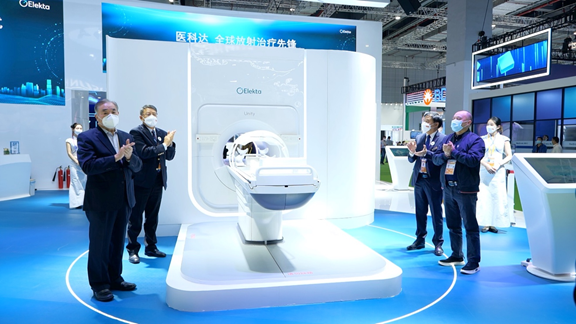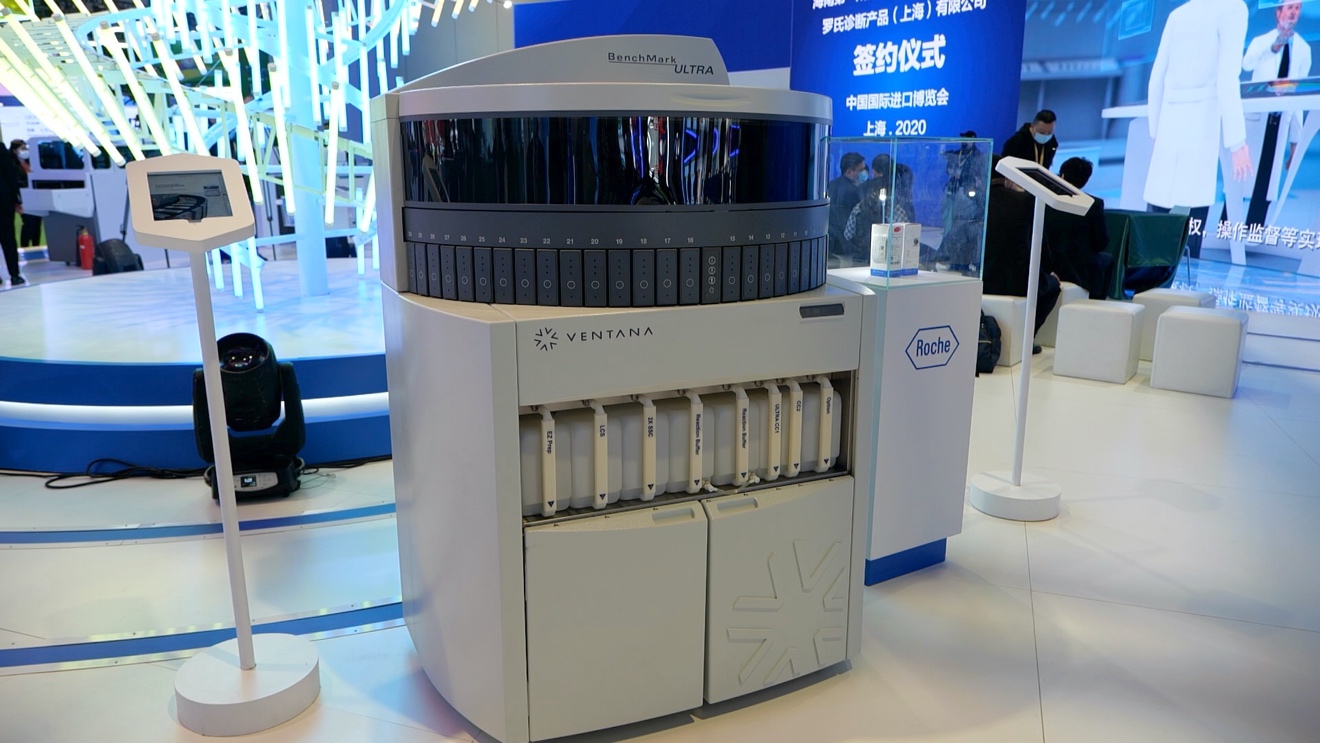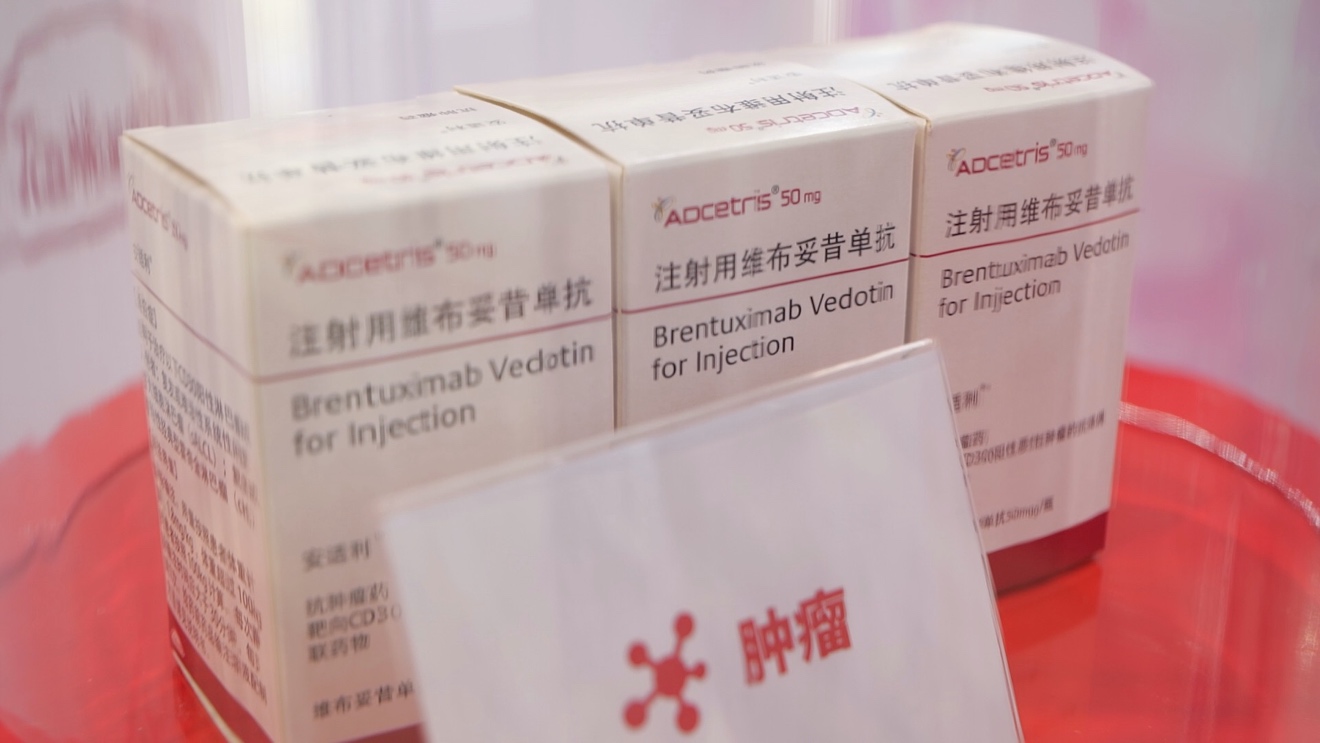03:29

According to China's National Cancer Center, Chinese people spend close to $33 billion on cancer treatment every year, indicating the country's more needs in advanced drugs and equipment, many of which can be found at this year's China International Import Expo (CIIE).
Roche Diagnostics is showcasing a next-generation diagnostics device called Benchmark ULTRA at the CIIE. It helps with immunotherapy for diseases like bladder cancer by identifying key tumor markers for patients.

Roche Diagnostics showcases its Benchmark ULTRA. Li Siqi/CGTN
Roche Diagnostics showcases its Benchmark ULTRA. Li Siqi/CGTN
"What's special with Benchmark ULTRA is that there are individual slots. They enable us to assess individual testing. As soon as any testing is finished, we can take the results and report to our patients immediately. I think with ULTRA, we expect to improve the turnaround time of cancer diagnostics reporting to patients," said Yao Guoliang, general manager of Roche Diagnostics China.
In the same pavilion, Takeda, a Japanese medical firm, is displaying a new drug called Adcentris. "It is for treating CD30 positive lymphoma. It was just approved a few months ago, and commercially available two months ago in China," said Sean Shan, president of Takeda China. "For those lymphoma patients who have CD30 positive tumor cells, the drug will precisely target these cells."

Adcentris is used to treat CD30 positive lymphoma. Li Siqi./CGTN
Adcentris is used to treat CD30 positive lymphoma. Li Siqi./CGTN
Takeda is working with its partners in China to establish diagnosis capabilities for the tumor markers. "For this CIIE, we also will announce strategic partners with diagnosis companies," said Chen.
The CIIE has become an effective platform for many companies who want to bring their products to the Chinese market.
Swedish medical firm Elekta is showing their radiotherapy device called Unity for the third year. But the difference this time is that it finally received approval from China's medical regulator this August. Unity went from being a showcase item to an actual product in China.
"This is a revolution in radiotherapy. In the past, it was difficult for doctors to visualize the radiotherapy process. But now they can with this device. Doctors can now kill cancer cells more precisely without damaging normal organ tissues nearby," said Gong Anming, China president of Elekta.
About one in six deaths globally are due to cancer, making it the second leading cause of death. In China, over 10,000 people are diagnosed each day, and the number is rising. Many patients are counting on the introduction of these ever-advancing solutions.